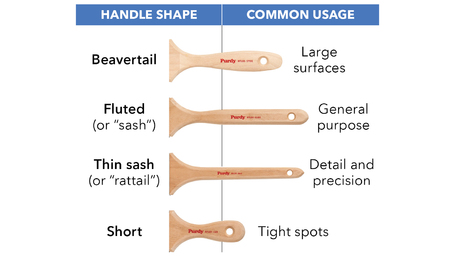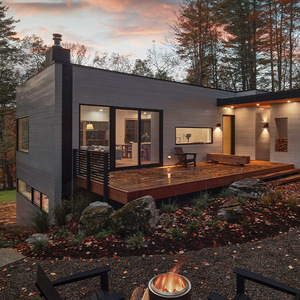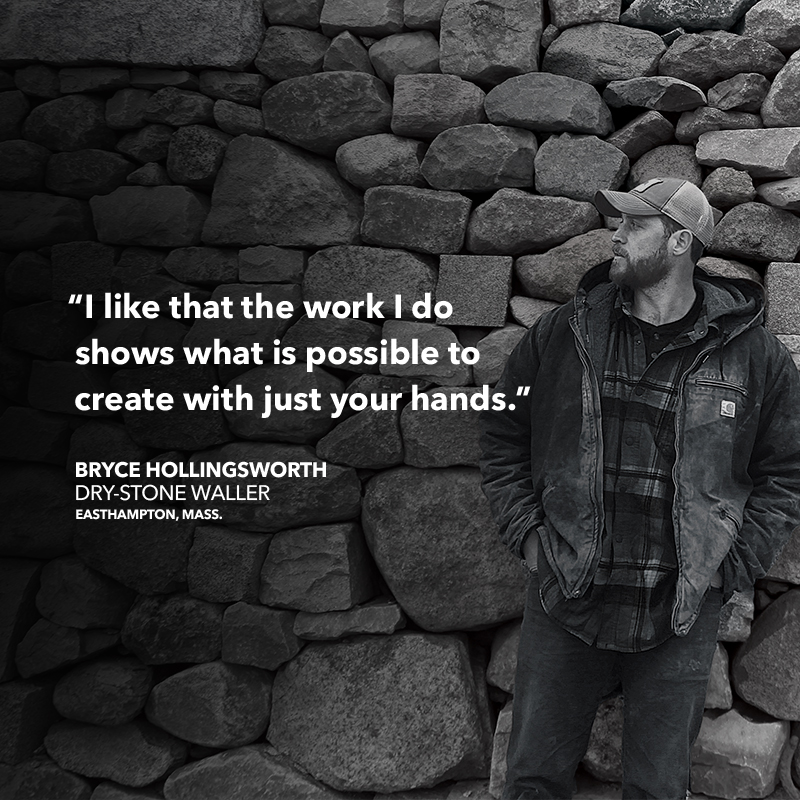*
Are Gas stoves better than electric?
Discussion Forum
Discussion Forum
Up Next
Video Shorts
Featured Story

Tips for picking the right paintbrush based on paint type, surface, and personal comfort.
Featured Video
Builder’s Advocate: An Interview With ViewrailHighlights
"I have learned so much thanks to the searchable articles on the FHB website. I can confidently say that I expect to be a life-long subscriber." - M.K.
Fine Homebuilding Magazine
- Home Group
- Antique Trader
- Arts & Crafts Homes
- Bank Note Reporter
- Cabin Life
- Cuisine at Home
- Fine Gardening
- Fine Woodworking
- Green Building Advisor
- Garden Gate
- Horticulture
- Keep Craft Alive
- Log Home Living
- Military Trader/Vehicles
- Numismatic News
- Numismaster
- Old Cars Weekly
- Old House Journal
- Period Homes
- Popular Woodworking
- Script
- ShopNotes
- Sports Collectors Digest
- Threads
- Timber Home Living
- Traditional Building
- Woodsmith
- World Coin News
- Writer's Digest


















Replies
*
I just acquired a gas stove/oven (a Whirlpool) to replace an aging electric stove/oven. After getting it hooked up and adjusted (leveled, no yellow in flames, etc) I was surprised that a pot of water doesn't boil as vigorously as it did on electric. I have a 12,500 btu burner on the gas, but even at full-tilt boogie, it doesn't get the water *really* boiling; it boils, but sort of half-heartedly. No clouds of steam rising off of the pot or huge breaking bubbles throughout the pot. Is this just the difference between gas and electric, or should I be suspicious of the performance of my gas stove? It is on natural gas, brand new plumbed-in 3/4 line and the flames appear as the manual says they should...... Inquiring minds want to know! --Ken
*Ken about gas vs. electric, you could check the Fine Cooking disscusion archives, but to give you an idea, someone said that a $500 gas range was better that a $7,000 electric and no one contradicted that. I don't know what is going on with your 12,500 Btu (/Hr) burner, I would think that would boil water pretty damn fast. Something you could try would be to mesure how fast water heats (below the boiling point) if one started with, say, 10lbs of water (about 4 & 3/4 Qt.) your 12,500Btu burner would raise the temperature 1,250 degrees an hour, or 20.8 deg./min if ALL the heat was transfered to the water. Of course nothing is 100% efficent, so the rise will be less, I have no idea what efficency one can expect, but if the rise is less that 10 deg./min you may have a problem, if it is significanly more than 20 deg/min, you may want to; check my math, put a new battery in your watch, buy a new thermometer, contact the National Iquirer.Jay
*
We prefer gas, in fact spent an extra $300 to pipe the gas over when replacing a 25 y.o. electric. For cooking, it's a matter of personal preference; most cooks prefer the instant response of a gas flame. And when it's off, it's off. (Gas is also much cheaper, but it would take a long time to make a difference.) People used to prefer electric for larger oven space and more even oven heat, but they claim to have overcome that problem.
Your boiling puzzle is interesting. The violence of the bubbling is probably not a good indicator -- the gas provides more even heat. The amount of steam varies with the amount of hot air passing around the sides of the pot (greater with gas) -- note how the steam increases when you turn the burner off.
A better test of BTU's would be to measure how long it takes to evaporate a fixed amount of water under identical conditions. It takes a great deal of energy to evaporate water, 540 times as much as it takes to raise its temperature by one degree.
Vocab Q: what's the difference between a range and a stove? Modern cooktop/oven is called a range, at least in N. America. Stove makes me think of pot-bellied stove, i.e., a cooktop/oven with a single heat source, but both terms are fairly old. OK, this is off topic...
Addednum: well, after making a few guesses above, i checked with Consumer Reports subscriber site, remembering that one of their tests is how long it takes to boil water. Their comments, from the 1/99 article on gas ranges (btw, I highly recommend their reviews of appliances):
> Cooktop heating. The fastest [gas] ranges heated a large pot of water nearly to boiling in about 15 minutes. That's a few minutes slower than the best electric coiltop ranges--still the champs in heating time–but about seven minutes faster than the slowest performers. The quickest heaters all had a burner that delivered at least 12,000 Btu/hr. (British thermal units per hour, a measure of heat output). A few models had two such burners--which might be a plus to serious cooks.
> However, high-powered burners are no guarantee of high-powered performance; a few tested ranges that had them were only average in cooktop heating.
*
Thanks for the input; I also checked out the Consumer Reports site, too. Regarding "stove" v. "range," that's just probably my colloquial usage. The water is obviously "boiling," but it isn't a "rolling" boil. I did try it with a larger diameter pan, too, thinking the heat was going around the first pot, but it didn't seem to make much difference....... A call to the Whirlpool help line resulted in a reference to the local warranty support company; I'll see what info I get there....
*
Consider Dual Fuel. Dacor and others have fine products.
*Guys, I'm struggling to recall my high school physics, but it seems I remember learning that (for a given barometric pressure) water will boil at the same temperature, and remain at that temperature no matter how vigorously it boils.The more heat you apply, the greater the vaporization (steam), but the actual temperature of the water remains at the "boiling point". The concept I recall is that the heat energy shifts from raising the temperature to vaporization of the water, once the boiling point is reached. Water can only be heated to a temperature higher than the normal boiling point by keeping it under pressure ... thus pressure cookers and pressurized cooling systems on vehicles.If so, then what would be most important in this thread is how quickly the water can be brought to a boil. Our new dual-fuel Jenn-Air slide-in beats the socks off our old electric unit, and we love the combination of gas for the cooktop and electric/convection/self-cleaning oven.Not a physicist, Steve
*Temperature rise could be used; I suggested rate of vaporization because of the greater energy required to break them hydrogen bonds -- maybe yielding a more precise measure of energy transfer.... Someone out there has got to try this...
*
Well, here's what the service tech told me when I called him on the phone. I didn't write down the numbers, so bear with my approximation of his answer.
Electric burners put out XXX amount of BTU's, which is some multiple of several times of the maximum 12,500 BTU rating of the biggest burner I have on my gas stove; plus electric burners heat to a temperature of XXXX which is some multiple of the 7 or 800 degrees of the gas flame, meaning thus that although the water will *boil*, it won't be the huge *rolling* boil I've come to know on an electric cooktop.
Now bear in mind that the range appears to function perfectly well and the flame seems to be exactly as it is supposed to be -- nice and blue, only an occasional yellow spike, etc.
If what the tech guy told me is right, here's one explanation, based on my rudimentary high school physics knowledge, plus some keen observations of the hydrodynamic and thermal characteristics of brewing beer in large (20 gallon) kettles over a 135,000 BTU burner in the garage and also watching many, many, many bubbles leave my regulator while diving at 80 or so feet:
Perhaps the specific heat input on gas isn't sufficient to vaporize (under pressure at the bottom of a pan of water about 6 inches deep) enough steam to cause the "rolling" boil, even though the water is right at 212+ or -. and this really isn't anything I should be worrying about.
I do really like the "instant on" heat of the gas, plus the abiliy to finely regulate heat input at something other than full-tilt boogie boil....... Do I hear a homebrew calling??????
*
The average electric is better at boiling water than the average 12000 BTU gas burner. You need to go one step up to the 18000 BTU gas burners to get close to what electric can do to water. My cooktop is rated at 18000 BTU, I've got about 16000 BTU (about a 10% penalty for using LP) and get a very nice "rolling boil" out of it.
Most cooks who actually cook do prefer gas. The main reason is flame control. High-end (actually even many mid-range) gas tops can go from a very low simmer setting to 18000 BTU in the time it takes to turn the knob. Resistance coils can neither go that low nor that high, and there is a significant lag in coil heating time in going from one temp setting to another, which you get instantly with gas.
Electric also requires flat-bottomed pots/pans, and lose transfer efficiency with slightly warped pans. Gas doesn't care if the pan is flat or curved like a wok.
If you have a properly sized supply line, no sediment in the filters and are getting proper pressure out of the regulator, I would think you would be getting better performance than what you describe.
Though remote, on occasion I have heard of icing in the pressure regulator. It occurs in new installations when there is moisture in the gas line. The moisture ices up in the pressure regulator, restricting gas flow. Not common, but it has happened.
*
This is interesting. This is a new gas line (we had to extend it about 25 feet to run from the existing furnace to the kitchen). Perhaps with time it will improve.
Do you suppose the 18,000 btu burners also have a higher pressure on the pressure regulator, or just more gas being let through the orifice? I do know that the only apparent difference between my four burners is the size of the orifice on the "spud" in the control valve.......maybe I've got a drill around here somewhere.......
*
I'm not sure on that. I'd think the pressure would be near equal and the resultant higher BTU's would be more a function of increased gas volume through a larger burner ring. I really can't say, though. I'll see if I can dig up the paperwork on the cooktop and check the specs.
Sorry I can't be more help.
*You might want to double-check your pipe sizing. I think our range will accept different "spuds" for LP.A friend put in a like 30,000 BTU gas "wok well". He used to be a professional cook & loves hot food. The monster exhaust fan he had install over the wok will lift your hair.
*
We installed new 3/4 line as specified in the manual for this new stove. It reduces to 1/2 for the flex line and the input port on the regulator is 1/2.
*
Are Gas stoves better than electric?